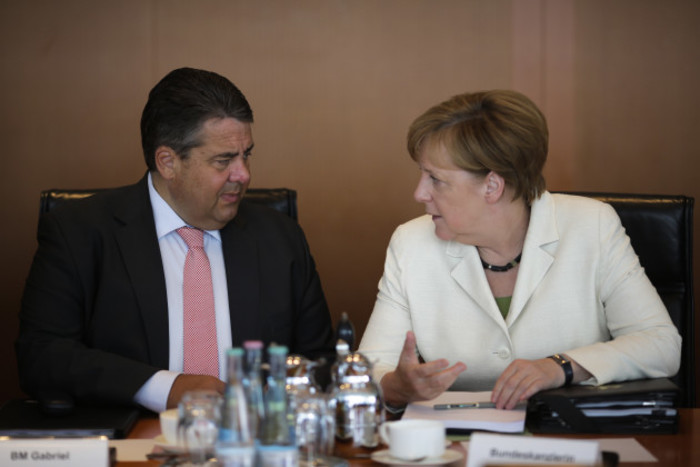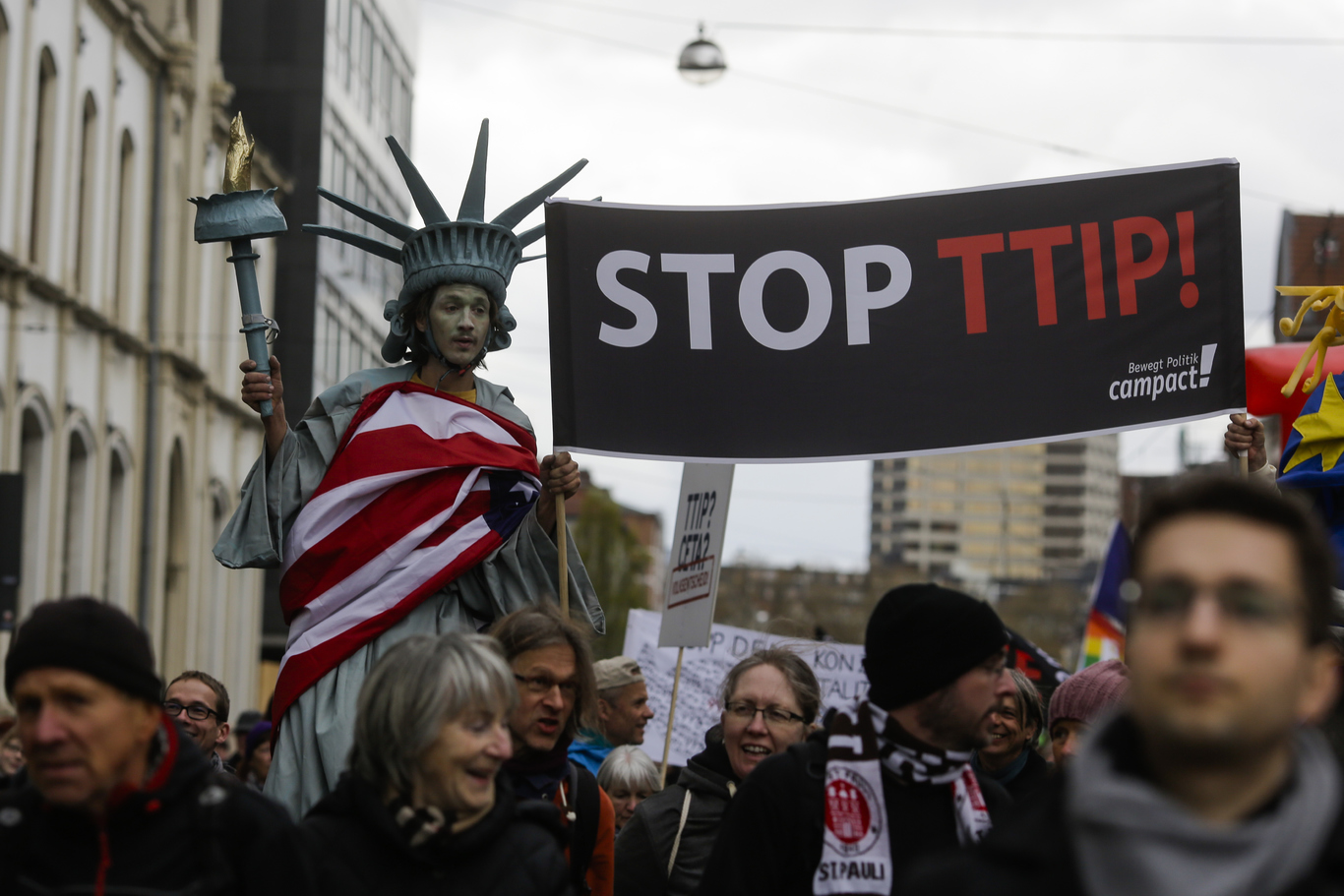The EU has shrugged off claims that free-trade talks with the US have 'de facto failed'
The controversial TTIP proposal has been three years in the making.
THE EUROPEAN COMMISSION has dismissed claims from Germany’s vice chancellor that long-running free-trade negotiations between the EU and US are on the brink of collapse.
During a question-and-answer session on the public broadcaster ZDF, Sigmar Gabriel – who is also the German economy minister and head of the centre-left Social Democratic Party – said the proposed Transatlantic Trade and Investment Partnership, or TTIP, has “de facto failed”.
The European Commission’s spokesman, Margaritis Schinas, acknowledged that talks are “entering a crucial stage” but insisted the commission is “ready to close this deal” by year-end.
 Sigmar Gabriel with Angela Merkel
Sigmar Gabriel with Angela Merkel
Gabriel had accused Washington of being “angry” about the deal that the EU struck with Canada, known as CETA, because it contains elements the US doesn’t want to see in the TTIP.
His comments were in sharp contrast with those of chancellor Angela Merkel, who recently said the TTIP was “absolutely in Europe’s interest”. Washington has yet to respond to Gabriel’s comments.
Controversy
Three years in the making, the proposed series of trade deals between the two economies has been controversial throughout.
TTIP was put forward in a bid to reduce tariffs and standardise regulations on industries such as food safety, pharmaceuticals and energy to make it easier for new products to be introduced to markets.
However, the secretive nature of negotiations and support from multinationals and business lobby groups set off alarm bells for governments and organisations that fear previously public services could be privatised.
A high profile leak from Greenpeace earlier this year poured fuel on the sceptics’ fire, with claims that the deal is “a huge transfer of power from people to big business”.
On the back of Sigmar Gabriel’s comments, Sinn Féin MEP Matt Carthy issued a statement calling for a renewed campaign against TTIP.
“It is clear now that TTIP is politically dead, at least for the time being,” he said, echoing Gabriel’s claims that the trade deal could have negative consequences for CETA.
With reporting from the Associated Press and AFP.






